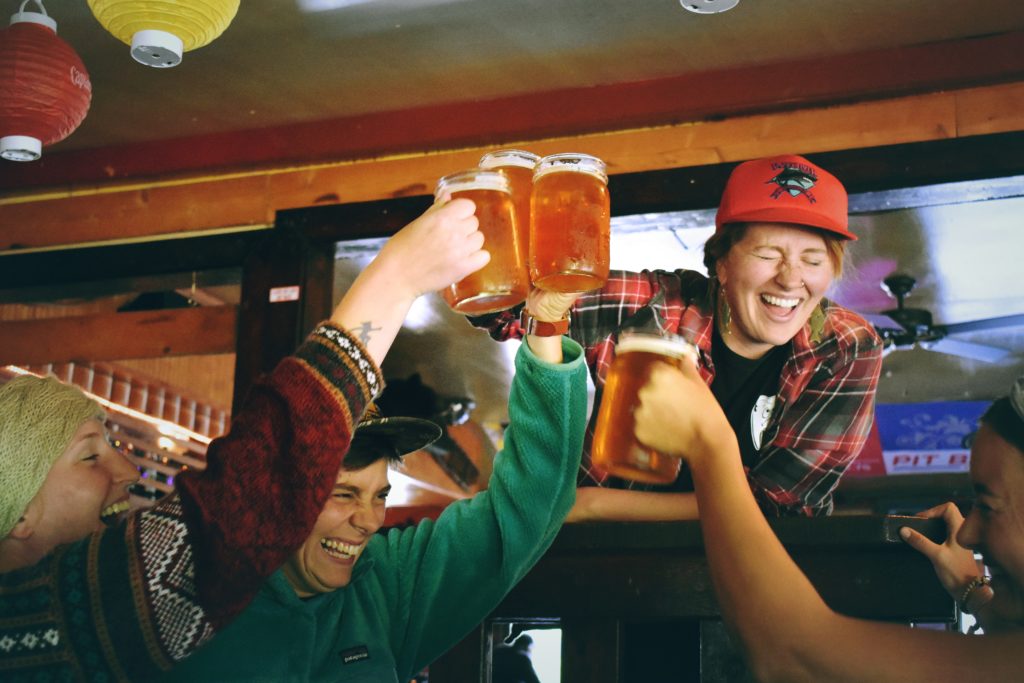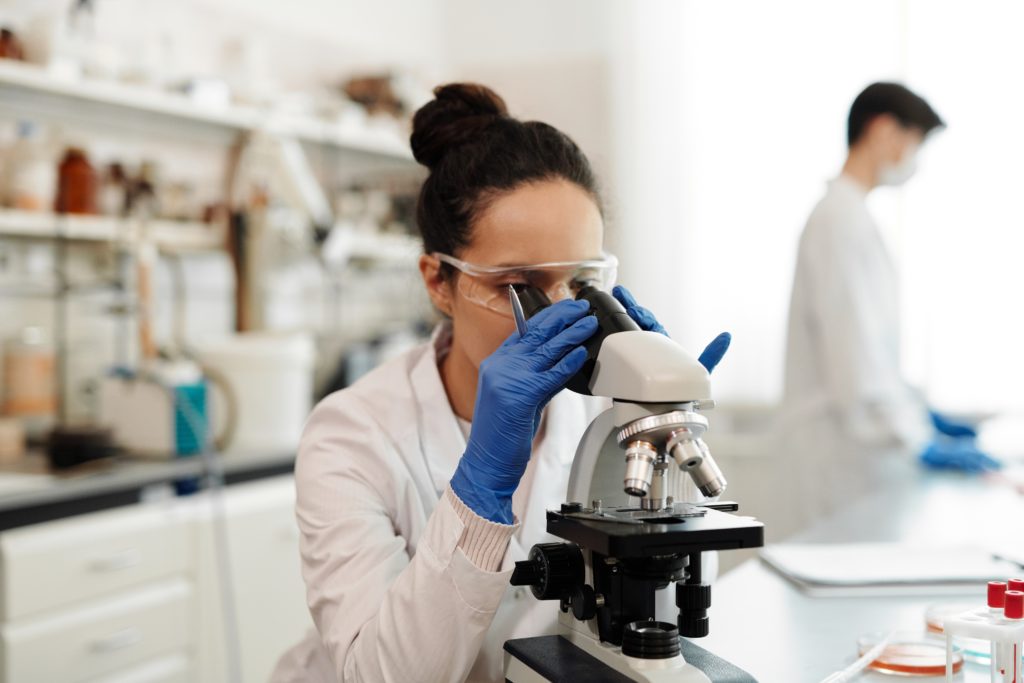New study reveals extensive genetic links not only to alcohol use disorder, but also problematic drinking without physical dependence

Brandon caught his breath and stopped. He looked around him. Where am I … and how did I get here? He was surrounded in pitch blackness. Couldn’t see a street light, not even moonlight. He realized he’d been walking at a fast pace, but where from? And where was he going? He remembered nothing, knew nothing, except this very moment. He felt terrible, and realized with horror he was about to be sick… After retching up his insides, the odor of undigested alcohol wafted from the ground. Then it all made sense. He’d had a lot of alcohol, apparently. Again. Problematic drinking follows you around just waiting to trip you up, he thought. He gingerly tried to move forward on ground that was shifting like a rough sea to find his way home. He wondered how long he’d been gone, and whether he’d hurt anyone… or broken any laws. It was torture no knowing.
Creeping forward, slowly, reaching in front of him to find something to steady himself, his hand touched something cold and solid like concrete or stone. As he followed what felt like a long wall, Brandon eventually emerged into the open where there were street lights, and the moon was shining brightly.
He looked behind him and realized he’d been in some sort of tunnel. A police car drove by and he instinctively hid. He had no idea what he’d done — and whether they were looking for him. But it was the not knowing that made him afraid.

Shame, Humiliation, Fear
This was all too familiar. Finding himself lost. No memory of where he’d been. Staggering to find his way home.
Brandon woke up in an alley. His shame and self-loathing sucked all courage out of him. Self respect always eluded him. The sun was up and he could find out where he was and get home. But, what then? His wife would be so furious. Why was he like this?
He just wanted to die.
Genetic Links When Problematic Drinking Follows You Around Like a Stray Cat
Neuroscientists have explored the genetic links to problematic alcohol use for many years. But more recently, a research team lead by Joel Gelemter, M.D., conducted a study published in Nature Neuroscience that included over 435,000 subjects (and of those, 200,000 came from MVP — the VA’s Million Veteran Program). Their paper found nearly 3 times the locations (they call them “loci”) in the human genome that seem to correlate to critically increased risk of problematic drinking.
As you know, we refer to the pathological use of alcohol as alcohol use disorder. These neuroscientists use the term “problematic alcohol use” in a similar context that includes those with alcohol use disorder, as well as those who are not physically depending on it or, as some say, addicted to it, but when they do use alcohol, it results in problems in their lives or those around them.
Both of these conditions interfere with your life, your work, and your relationships.
For generations, people like Brandon were judged “irresponsible” or “weak.” But the more we learn about your brain and your DNA, the more we come to understand how complex these conditions are.

Your genes determine the color of your eyes, your skin, your hair… they determine your height, your natural talents, whether you like chocolate or cilantro, the pitch and clarity of your voice.
They also lay a road map for the likelihood you’ll struggle with asthma, diabetes, depression, bipolar disorder…and yes, problematic alcohol use. Just as you would be cruel to criticize or judge a person by the color of a their skin or their eyes, it’s also cruel to judge their propensity for one of these disorders.
That’s why so much work is being done to better understand what people deal with regarding alcohol use. Problematic drinking can follow you and seem to never let go.
Research Reveals Links Between Problematic Drinking and Tobacco Use, Depression
Knowing the details of the links between DNA and problematic drinking doesn’t solve the problem, but it helps us know how to approach treatment.
For instance, this massive study revealed DNA connections with other related traits like tobacco-use disorder and substance abuse disorders. Since the human genome is 3 billions pairs of “letters”, they learned that even a single variation in one single “letter” impact these disorders.
Tough to wrap your head around it, isn’t it?
Long story short: problematic drinking can be related to tobacco use, schizophrenia, ADHD, and depression.
The study also revealed that about half your risk for problematic drinking is inherited, which can help us understand why willpower sometimes just isn’t enough to gain control of pathological drinking.
And while there is no panacea, no 100% perfect and effective treatment for all these disorders and conditions, there are things you can do, treatments you can reach out for, that can help restore your freedom.
Ketamine treatment, for instance, can slow down your drinking after just one infusion. And if depression or social anxiety is fueling your drinking, ketamine treatment can lift those symptoms so remarkably, you can achieve remission.

We’ve talked about alcohol use disorder, and today we’re including problematic alcohol use. But if you want life to be different, and to have the freedom to build a rewarding life, you may be a good candidate to see if ketamine treatment can help.
If problematic drinking follows you around, turning a social gathering into a nightmare for you, there’s hope. Maybe you don’t believe you have a disorder, maybe a 12 step program doesn’t seem like a good fit.
But several infusions of ketamine within a few weeks could be just the thing to give you back control in your life.
Reach Out for Change and Freedom
At Innovative Psychiatry, we see people who want balance in their lives, who want to restore their self respect and credibility. People who suffer from alcohol use disorder, and those who just have bouts of problematic drinking that strain the foundations they’ve worked hard to build.
And we see these people marvel at the benefits they’ve experienced from ketamine treatment. Some completely lose their desire to drink alcohol at all, others find their interest in a drink dissipates halfway through it. And if they also suffer from depression, PTSD, or even suicidal thoughts… they can leave our office after treatment feeling restored.
Do the struggles we’ve talked about sound familiar? Call us.
That problematic drinking with genetic links may be treatable. Reach out for help to get your life back in order.
We’re here to help, and offer ketamine treatment safely in our office.
Give yourself the opportunity to live really well.

To the restoration of your best self,
